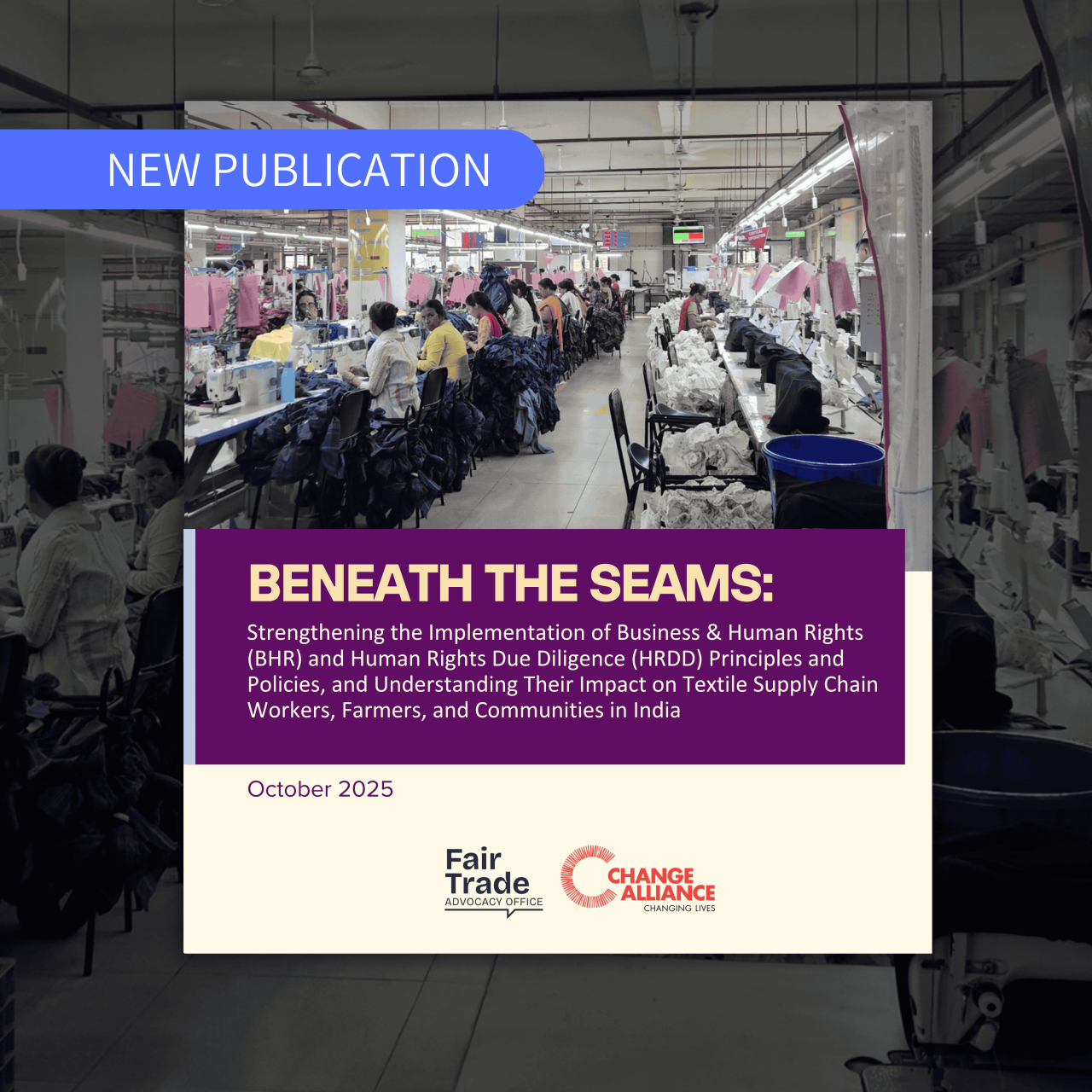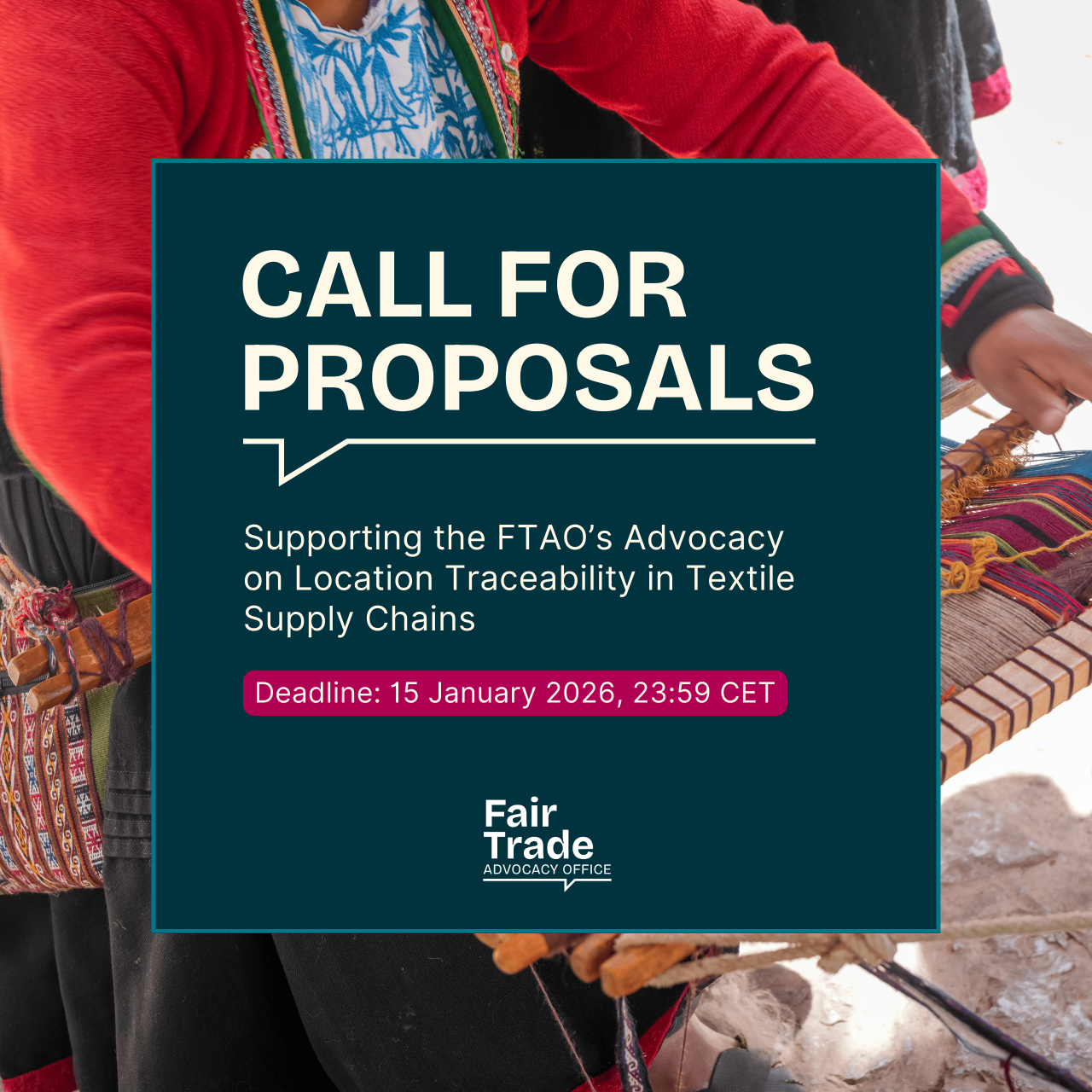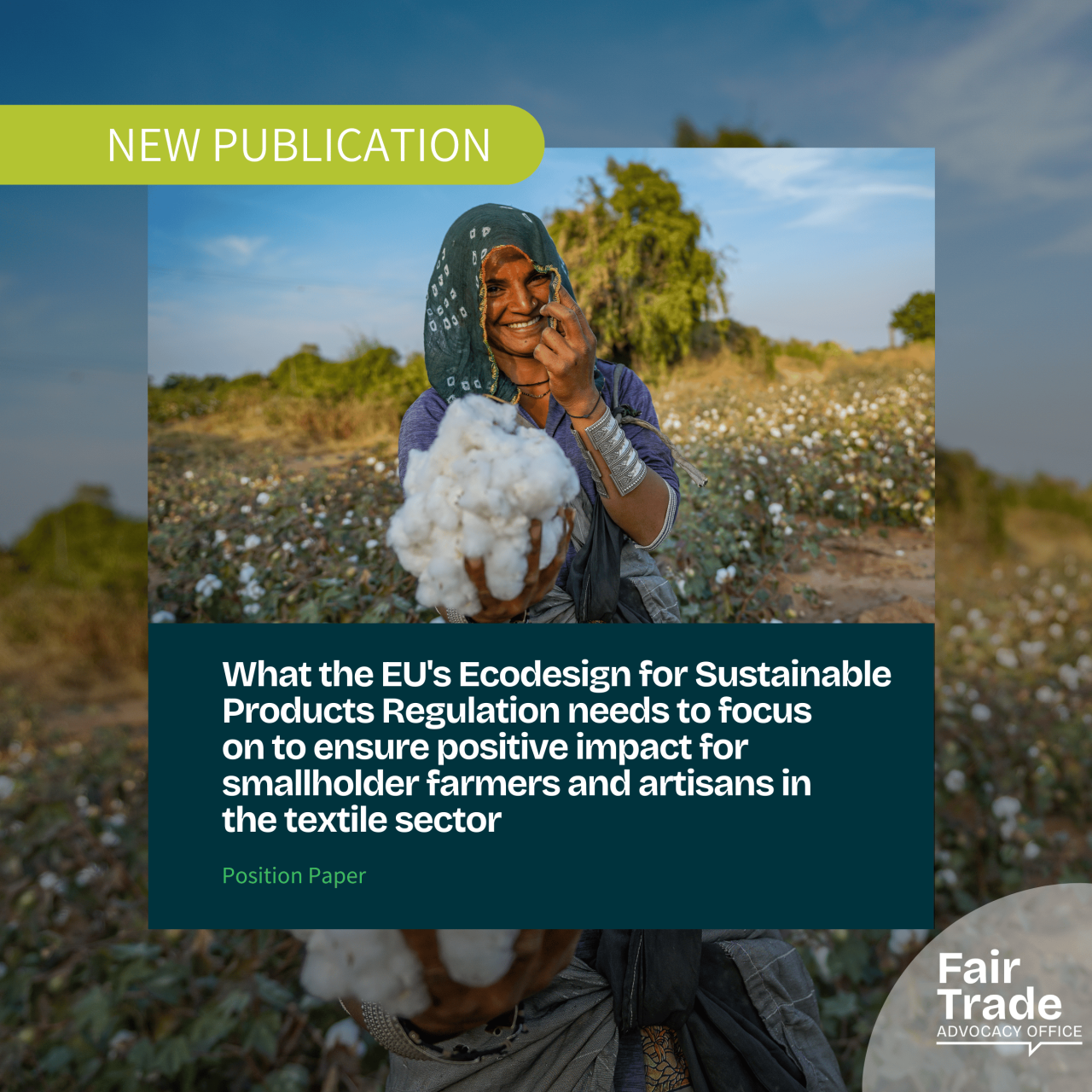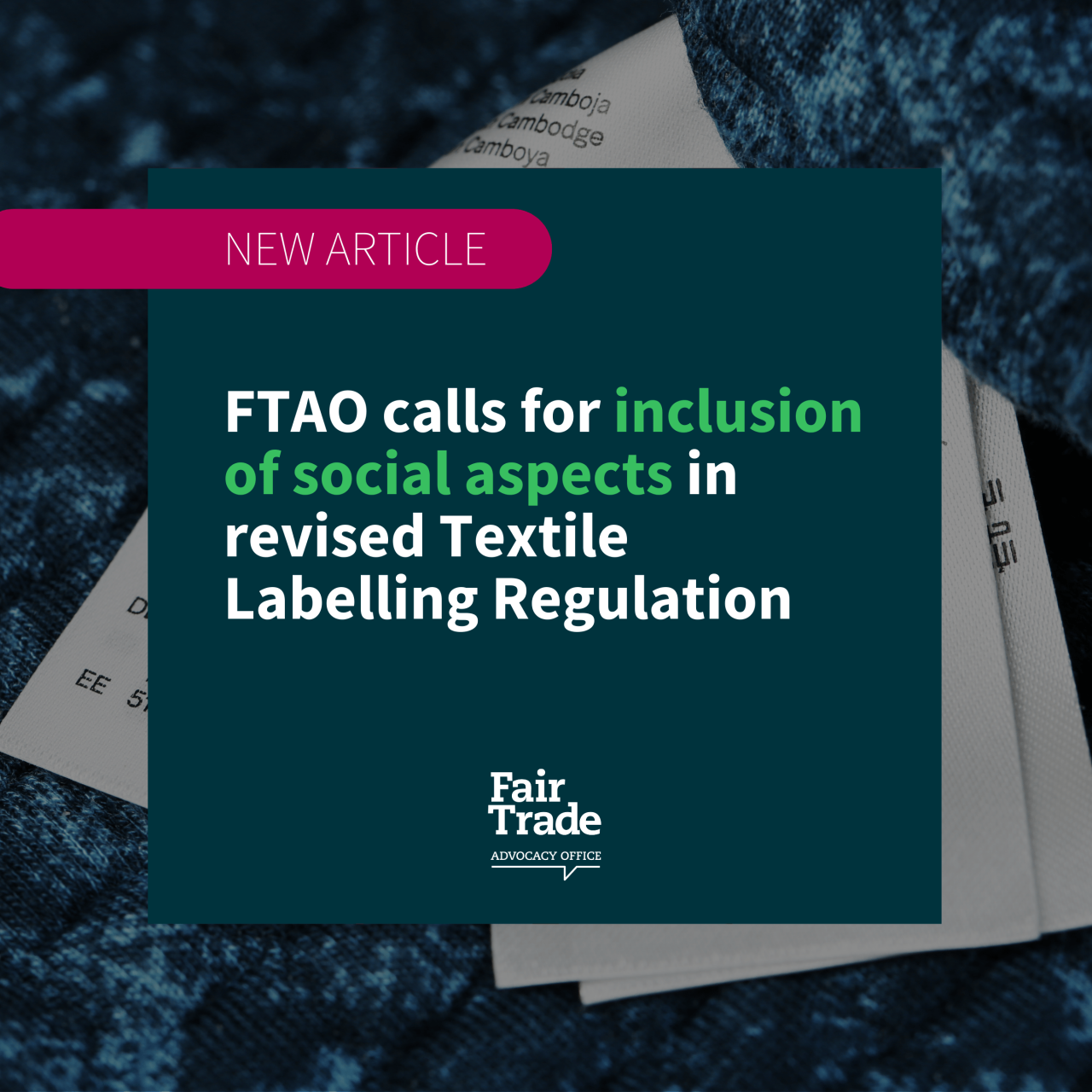Beneath the Seams: Strengthening Human Rights Due Diligence and its impact on textile workers, farmers and communities in India

Across the world, laws and regulations are evolving to ensure that businesses respect human rights and the environment. Human Rights Due Diligence (HRDD) is increasingly becoming a legal requirement for companies, rather than a voluntary practice.
India’s garment sector employs over 45 million people, including 12 million in factories and many more in informal or home-based work. Meeting global standards must not come at the cost of livelihoods. As new global laws come into force, Indian suppliers, workers and smallholder farmers will face increasing pressure to meet these standards.
The European Union’s Corporate Sustainability Due Diligence Directive (CSDDD), along with similar measures in France, Germany, Japan, and South Korea, will directly influence how Indian suppliers operate, alongside India’s own National Guidelines on Responsible Business Conduct (NGRBC). Conducting HRDD effectively not only ensures compliance but also reduces risk, safeguards reputation and strengthens supplier–worker relationships.
To ground these shifts in real supply-chain experience, Change Alliance, with the support of the Fair Trade Advocacy Office (FTAO) and Fairtrade Network of Asia & Pacific Producers (NAPP), conducted a series of multistakeholder consultations in Delhi, Bengaluru, and Tiruppur in May and June 2025. Using participatory methods and open dialogue, we engaged 115 stakeholders across the garment chain, workers (including women and migrants), unions, suppliers, cotton farmer representatives and local organisations. Findings from each session were shared iteratively and consolidated into this report.
The workshops focused on three priorities:
- Living Wages & Living Incomes: Move beyond minimum wages to embed living wages and farmer incomes in contracts and costing, not philanthropic add-ons.
- Fair Purchasing & Responsible Exit: Curb harmful price/time pressures; define notice, cost-sharing, and remediation duties so brands fix problems rather than walk away.
- Meaningful Stakeholder Engagement: Ensure trusted, worker-led channels, especially for women and migrants, beyond checkbox audits, with unions included in decisions.
Read the full report to see detailed concerns, concrete recommendations and next actions for brands, suppliers, policymakers and worker organisations.
Get in touch:
For more information about the project, please contact our Senior Policy and Project Coordinator, Alena Kahle, at kahle@fairtrade-advocacy.org
For more information about Change Alliance India, please visit: www.changealliance.in
 (3).png)
More From The Workstream

CALL FOR PROPOSALS: Supporting the FTAO’s Advocacy on Location Traceability in Textile Supply Chains

The FTAO launches Textiles Advocacy Strategy Group to strengthen global voices in EU textile policy

What the EU's Ecodesign for Sustainable Products Regulation needs to focus on to ensure positive impact for smallholder farmers and artisans in the textile sector
